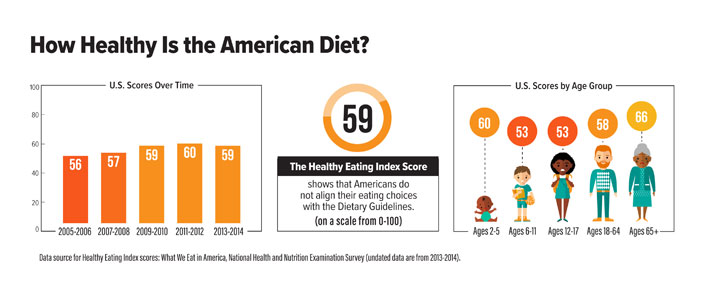USA Swimming News
Top Tips for Increasing Strength – Through Nutrition

by Chris Rosenbloom, PhD, RDN
What does strength mean to you? Most athletes think of muscle. That is a logical connection as muscle powers swimmers through workouts and competitions. But, at a recent conference called the “Strength Summit: The role of strength in optimizing health and well-being,”* we were encouraged to think about strength in bigger terms.
Dr. Heather Leidy, Associate Professor in the Department of Nutrition Science at Purdue University, talked about the importance of mental, emotional, cognitive, and physical strength for young people. Of course, training supports your ability to swim, but does your food intake support your ability to be strong in all aspects of your life?
There are many challenges faced by swimmers to make healthy food choices. Do any of these challenges sound familiar?
- School
- Homework
- Swim practice
- Travel time to and from practice
- Weekend competition
- School club participation
- Part-time job
- Community volunteering
- Family obligations
- Playing multiple sports
- Time with friends and having a social life on Snapchat, Instagram, etc
For most swimmers, this is only a partial list and what is missing is time for sleep and eating; both important to mental and physical strength. Dr. Leidy stressed that young people have a higher need for energy (calories), carbohydrate, protein, fat, fiber, and vitamins and minerals, especially calcium, potassium, vitamin D, and for teen girls, iron. And, unfortunately, children and adolescents have the lowest diet quality scores compared to other age groups. Dr. Leidy showed this visual from national data on a measure of diet quality called the Healthy Eating Index. Scores range from 0 to 100; much like a letter grade you might receive on a school exam. Those in the age groups 6 to 17 have a score of 53 and by most school standards that is a failing grade.

What can you do to improve your score? Dr. Leidy suggests focusing on dietary patterns, not individual foods, to promote strength. Don’t think of any one food as a superfood, but try to make your food choices into a super diet. Try these tips to increase mental and physical strength:
- Eat every 3 to 4 hours.
- Pack snacks for pre-and post-workouts, especially if you have an early lunch period at school.
- Choose foods from all food groups throughout the day; don’t limit carbohydrates, protein, or fat.
- Good breakfast choices include: handheld egg, cheese, and lean meat sandwiches, peanut butter toast, cereal with milk and fruit, yogurt with granola and fruit, or toaster waffles with almond butter.
- For snacks, try cheese sticks, whole grain crackers, beef jerky, fresh fruit, trail mix, nuts, dried fruit, 100% juice boxes, smoothies, or cottage cheese.
- At dinner, choose lean meats and remember that lean beef, pork, or dark meat chicken boost important nutrients like zinc and iron, compared to chicken breasts. Fish, like salmon or tuna, provide protein and healthy fats and pasta dishes, like spaghetti and meatballs, deliver protein, carbs, vitamins and minerals.
During the conference we were asked to pick a letter from the word “Strength” and select a word that represents strength. Mine was “toughness.” Swimmers need mental, emotional, and physical toughness for their sport, and what you choose to eat can either help or hurt your strength. What’s your word?
* The Strength Summit was sponsored by National Cattlemen’s Beef Association, a contractor to the Beef Checkoff, and I was asked to participate on a panel and my travel was paid, but I was not asked or compensated to write this article.
